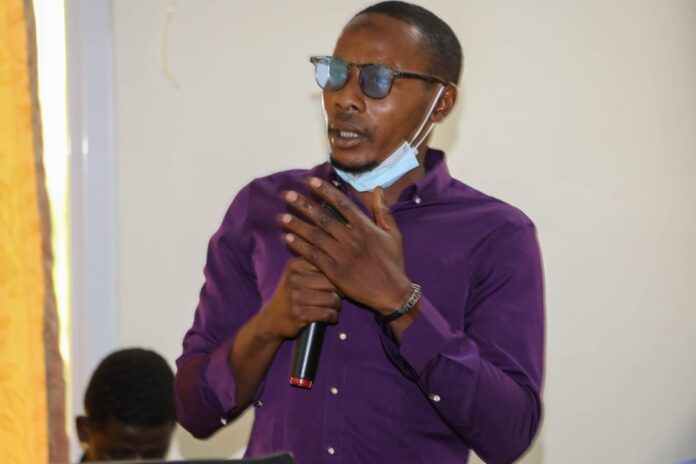By Alieu Jallow
Famara Kanyi, the Gambia Radio and Television Services (GRTS) Regional Correspondent for the North Bank Region, has been selected for the prestigious Oxford Climate Journalism Network (OCJN), becoming the first Gambian-born journalist to join the global fellowship.
Organised by the Reuters Institute for the Study of Journalism, the OCJN is a six-month international fellowship designed to equip journalists with the tools, knowledge, and networks necessary to enhance their climate change reporting. Although primarily held online, the program has drawn journalists from across the globe, including Musa Sheriff, a Sierra Leonean journalist based in The Gambia, who participated in a previous cohort.
Kanyi expressed pride and gratitude for the opportunity.
“I’m incredibly proud of this achievement. Being selected for the OCJN fellowship at Oxford is a significant milestone for me, not just professionally but personally as well. It’s a recognition of the hard work I’ve put into environmental journalism, and it motivates me to continue pushing boundaries and telling stories that matter,” he said.
With over 15 years of experience in journalism and development communication, Kanyi has served as a regional correspondent across the North Bank and Lower River regions. He has worked closely with UN agencies, community-based organisations, and civil society groups, focusing on climate change advocacy, policy engagement, and community resilience.
“Throughout my stay in rural Gambia, I have worked with several community-based organisations, NGOs, government, and UN agencies on climate advocacy and environmental sustainability. I have brought the ordeals of many communities bearing the impacts of climate change, pushed forward local mitigation strategies, as well as adaptation mechanisms. Today, I am a proud climate justice advocate and a journalist,” he states.
Kanyi emphasised the importance of representing Gambian environmental journalists on the international stage.
“Our country faces unique environmental challenges, and I see this as a chance to shine a light on those issues on an international platform. I want to bring visibility to the stories that often go unheard and show that even from a small country, impactful journalism can make a difference,” he said.
He added that he hopes the OCJN training will help him grow both technically and intellectually.
“I hope to deepen my understanding of environmental science and policy, improve my storytelling techniques, and learn how to engage audiences more effectively. Ultimately, I want to amplify the voice of my community and contribute to meaningful environmental change through informed and compelling storytelling.” He states
The Oxford Climate Journalism Network is part of a growing global push to improve the quality and depth of climate reporting. Kanyi’s inclusion highlights the increasing relevance of African voices in global climate discourse.




